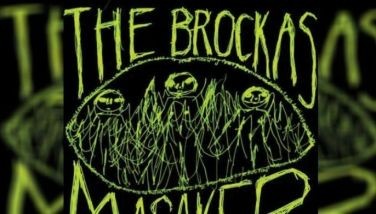Elephant talk
January 11, 2004 | 12:00am
• Artist: The White Stripes
• Album: Elephant
EMI Records
At their best, the White Stripes (Jack White and erstwhile spouse Meg White) can conjure up something rude and raw from the ’60s: the abrasive crunch blues and manic vocals of bands like The Seeds and the Sonics. At their worst, they can sound precious, pretentious, and a good argument for the claim that 99.9 percent of today’s musical acts are faint, faded copies of the originals.
On Elephant, they mine the best parts of their stripped-down sound (Jack on guitar, Meg on drums) and indulge in some of the worst: faux Anglophilia, guitar effects pedals and Burt Bacharach covers.
The result is a CD that’s half-great, but may still leave the unconvinced the same as when they came in.
A lot of it might have to do with hype about the band. Certainly, the Detroit-based White Stripes are the most media-conscious of the new garage bands (others include The Hives, The Strokes, Yeah, Yeah, Yeah). Hell, White’s even "acted" in a Civil War movie (Cold Mountain), just like Jewel! Indeed, there’s something occasionally irritating about White’s plaintive shout, but again, many people feel that way about Black Francis and Billy Corgan, the two vocalists he most resembles. And while the White Stripes are not "indie" in any real sense (they’re on EMI, for God’s sakes), about half the songs on Elephant will stick to your head like glue, if you listen with your ears instead of your intellect.
Let’s start with the good stuff. The opener, Seven Nation Army, disproves the notion that White Stripes require a bass player: it just happens to be Jack White on a low-octave guitar providing the familiar bassline here. Not a great chapter in the annals of punkadelia, though the song does have a nice, fuzzed-out guitar solo.
It‘s the second cut, Black Math, which best illustrates the White Stripes’ grasp of punk, garage and even sludge-metal (during the slow middle section). The stuttering solo is one of White’s best, manic and careening, like Yardbirds-era Jeff Beck. If only most of his output was this good.
Next comes There’s No Home For You Here, which is simply awesome, with its simple, clanging chords giving way to a wide-open harmony section that recalls both Queen and, oddly, ‘60s pop psychedelia by the likes of Kenny Rogers and The First Edition (specifically, I Just Dropped By [To See What Condition My Condition Was In]).
Meg White gets her moment in the spotlight, singing In The Cold, Cold Night, a sparse little tune held together by a jazzy guitar figure. But then there’s that questionable cover of I Just Don’t Know What To Do With Myself, White playing up the inherent drama of the Bacharach tune and turning it into a punk anthem. Exercises like these make longtime White Stripes fans wince.
Other highlights include the heavy blues rocker, Ball and Biscuit, which sports some gutsy soloing, the juicy slide work on I Want To Be The Boy To Warm Your Mama’s Heart, and the stop-start surge of Hardest Button To Button, which White pronounces "bu’in."
But the last great blast comes from Girl, You Have No Faith In Medicine, which captures the spirit of mid- to late-‘60s trash punk bands (not to mention seminal Detroit bands like The Stooges and MC5) to a ‘T’. It’s a lurching blues with a call-and-response solo section that also brings to mind the dueling guitars of late-Yardbirds.
It’s a strange sensation listening to a band like White Stripes: it’s like watching a blurry, shaky film from the past, the contours and general outlines of which you can almost make out, yet the details remain fuzzy, hard to pin down. Mostly, it triggers trace memories of a sound from long ago, back when rock music was shyly rearing its ugly little head, not quite sure it could get away with being so sloppy and rude, long before the Sex Pistols marketed such rudeness for mass consumption. The early garage bands that later inspired punk were either gloriously naïve, or else musically retarded, depending on your outlook.
Which brings up a point worth pondering. Why bother paying tribute to older bands and eras if you can’t improve or advance on them in some way? Most of the new garage bands suffer from the same criticism: they rehash a musical era that was, in most ways, more vital, original and pithy. Well, there’s nothing wrong, per se, in drawing inspiration from a rock movement that was so marginalized in the ‘60s that it didn’t even have a name (nobody at the time had respect for The Troggs, Count Five, Chocolate Watch Band, for instance). There may even be something noble, perhaps, in trying to resurrect some of the glory of a musical period where eight-track recording – not digital – was the norm. And even as the White Stripes have strayed from the stripped-down punk of their self-titled debut, adding pianos and keyboards to Elephant, they’re still growing. Though in this case too much growth could be a bad thing.
• Album: Elephant
EMI Records
At their best, the White Stripes (Jack White and erstwhile spouse Meg White) can conjure up something rude and raw from the ’60s: the abrasive crunch blues and manic vocals of bands like The Seeds and the Sonics. At their worst, they can sound precious, pretentious, and a good argument for the claim that 99.9 percent of today’s musical acts are faint, faded copies of the originals.
On Elephant, they mine the best parts of their stripped-down sound (Jack on guitar, Meg on drums) and indulge in some of the worst: faux Anglophilia, guitar effects pedals and Burt Bacharach covers.
The result is a CD that’s half-great, but may still leave the unconvinced the same as when they came in.
A lot of it might have to do with hype about the band. Certainly, the Detroit-based White Stripes are the most media-conscious of the new garage bands (others include The Hives, The Strokes, Yeah, Yeah, Yeah). Hell, White’s even "acted" in a Civil War movie (Cold Mountain), just like Jewel! Indeed, there’s something occasionally irritating about White’s plaintive shout, but again, many people feel that way about Black Francis and Billy Corgan, the two vocalists he most resembles. And while the White Stripes are not "indie" in any real sense (they’re on EMI, for God’s sakes), about half the songs on Elephant will stick to your head like glue, if you listen with your ears instead of your intellect.
Let’s start with the good stuff. The opener, Seven Nation Army, disproves the notion that White Stripes require a bass player: it just happens to be Jack White on a low-octave guitar providing the familiar bassline here. Not a great chapter in the annals of punkadelia, though the song does have a nice, fuzzed-out guitar solo.
It‘s the second cut, Black Math, which best illustrates the White Stripes’ grasp of punk, garage and even sludge-metal (during the slow middle section). The stuttering solo is one of White’s best, manic and careening, like Yardbirds-era Jeff Beck. If only most of his output was this good.
Next comes There’s No Home For You Here, which is simply awesome, with its simple, clanging chords giving way to a wide-open harmony section that recalls both Queen and, oddly, ‘60s pop psychedelia by the likes of Kenny Rogers and The First Edition (specifically, I Just Dropped By [To See What Condition My Condition Was In]).
Meg White gets her moment in the spotlight, singing In The Cold, Cold Night, a sparse little tune held together by a jazzy guitar figure. But then there’s that questionable cover of I Just Don’t Know What To Do With Myself, White playing up the inherent drama of the Bacharach tune and turning it into a punk anthem. Exercises like these make longtime White Stripes fans wince.
Other highlights include the heavy blues rocker, Ball and Biscuit, which sports some gutsy soloing, the juicy slide work on I Want To Be The Boy To Warm Your Mama’s Heart, and the stop-start surge of Hardest Button To Button, which White pronounces "bu’in."
But the last great blast comes from Girl, You Have No Faith In Medicine, which captures the spirit of mid- to late-‘60s trash punk bands (not to mention seminal Detroit bands like The Stooges and MC5) to a ‘T’. It’s a lurching blues with a call-and-response solo section that also brings to mind the dueling guitars of late-Yardbirds.
It’s a strange sensation listening to a band like White Stripes: it’s like watching a blurry, shaky film from the past, the contours and general outlines of which you can almost make out, yet the details remain fuzzy, hard to pin down. Mostly, it triggers trace memories of a sound from long ago, back when rock music was shyly rearing its ugly little head, not quite sure it could get away with being so sloppy and rude, long before the Sex Pistols marketed such rudeness for mass consumption. The early garage bands that later inspired punk were either gloriously naïve, or else musically retarded, depending on your outlook.
Which brings up a point worth pondering. Why bother paying tribute to older bands and eras if you can’t improve or advance on them in some way? Most of the new garage bands suffer from the same criticism: they rehash a musical era that was, in most ways, more vital, original and pithy. Well, there’s nothing wrong, per se, in drawing inspiration from a rock movement that was so marginalized in the ‘60s that it didn’t even have a name (nobody at the time had respect for The Troggs, Count Five, Chocolate Watch Band, for instance). There may even be something noble, perhaps, in trying to resurrect some of the glory of a musical period where eight-track recording – not digital – was the norm. And even as the White Stripes have strayed from the stripped-down punk of their self-titled debut, adding pianos and keyboards to Elephant, they’re still growing. Though in this case too much growth could be a bad thing.
BrandSpace Articles
<
>
- Latest
- Trending
Trending
Latest
Trending
Latest
Recommended

































